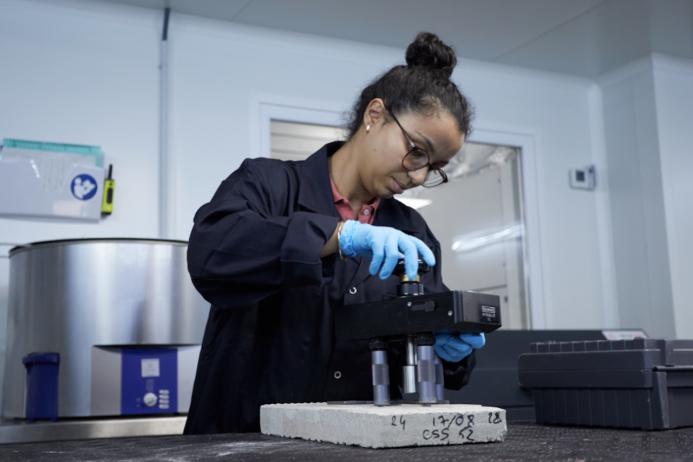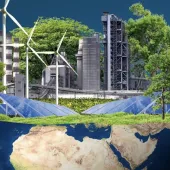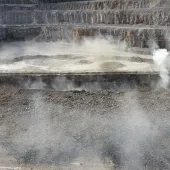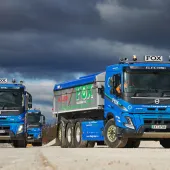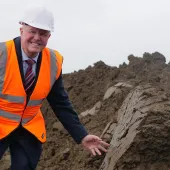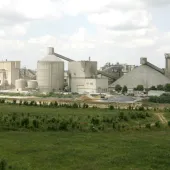ETA for Ecocem ACT Technology
Rapid cement industry decarbonization takes major step forward with European Technical Assessment
ECOCEM, a European leader in low-carbon cement technologies, have announced that their ground-breaking ACT Technology has obtained an ETA (European Technical Assessment) from EOTA (European Organisation for Technical Assessment) for a revolutionary, new eco-efficient cement. The independent assessment marks a critical step towards CE marking and will allow the introduction of this new low-carbon cement throughout Europe.
The ETA provides Ecocem with a route to full commercialization for its ACT technology by 2026 and creates the opportunity for the cement and concrete industries to do the same. There is also the potential to scale globally, since ETAs are recognized and highly respected internationally.
Ecocem say the path is now clear for the global cement industry to become the first major industrial sector to decarbonize in compliance with the Paris Agreement to achieve a 1.5°C trajectory, without major changes to current working practices or excessive cost.
ACT technology is the culmination of a decade of research and innovation by Ecocem to develop scalable, sustainable, low-carbon, competitive cement technologies. The technology is currently undergoing rigorous trials that are already demonstrating the carbon reduction possible using ACT – in effect, a 70% reduction in CO2 compared with the average European cement blend. The trials have also demonstrated strong performance on key criteria, including strength, durability, and concrete workability.
Ecocem, who plan to supply the first ACT cement to customers in their European markets during the course of 2024, with full commercialization by 2026, say the cement industry now enjoys a range of available low-carbon technologies sufficient to reach the EU’s newly proposed target of a 90% reduction of greenhouse gas emissions by 2040. The challenge now to policymakers, investors, and the industry is, they say, to accelerate the adoption of this ground-breaking technology.
These technological advances are crucial in the context of the Industrial Carbon Management Strategy, published by the European Commission on 6 February. By adopting readily available alternatives such as ACT clinker reduction technology, the cement industry can deliver the full benefits of decarbonization faster and at a lower cost, and reduce reliance on high-cost, long-term carbon capture solutions.
Commenting on this breakthrough, Donal O’Riain, founder and managing director of Ecocem, said: ‘Historically, the cement industry has struggled to achieve deep decarbonization, due to absence of low-carbon technologies capable of reducing the high CO2 emissions inherent in the cement manufacturing process. ACT technology provides the cement industry with a unique opportunity to halve emissions within the decade and become the first industrial sector to achieve a 1.5°C decarbonization trajectory.
‘This technical assessment is a game changer for the industry. It delivers the independent technical evaluation necessary to take ACT technology to European markets, directly and via licencing, to the cement, concrete, and construction industries. The industry’s carbon transition just got easier, cheaper, and faster. It is no longer possible to say we lack the technology or that costs are prohibitive.’
Christian Clergue, European Standards manager at Ecocem, added: ‘The technology to decarbonize the cement industry in line with the Paris Agreement exists. Thanks to the ETA, we now have the assessment that proves ACT’s safety and performance. It is no longer theoretical, but a real, existing technology that can now start having an impact.’
Ecocem are partnering with key organizations in the cement and construction industry, including Groupe CB, Point B, and Cemex France, to trial and develop the technology and ensure a continuous supply of materials.
To accelerate ACT’s delivery, Ecocem are scaling up activity at established production facilities in the Netherlands, Ireland, and France, where they will build a new mill to grind limestone at their Dunkirk plant, in partnership with CB Green. In the US, the company is in the latter stages of permitting for the construction of a plant on the West Coast.

